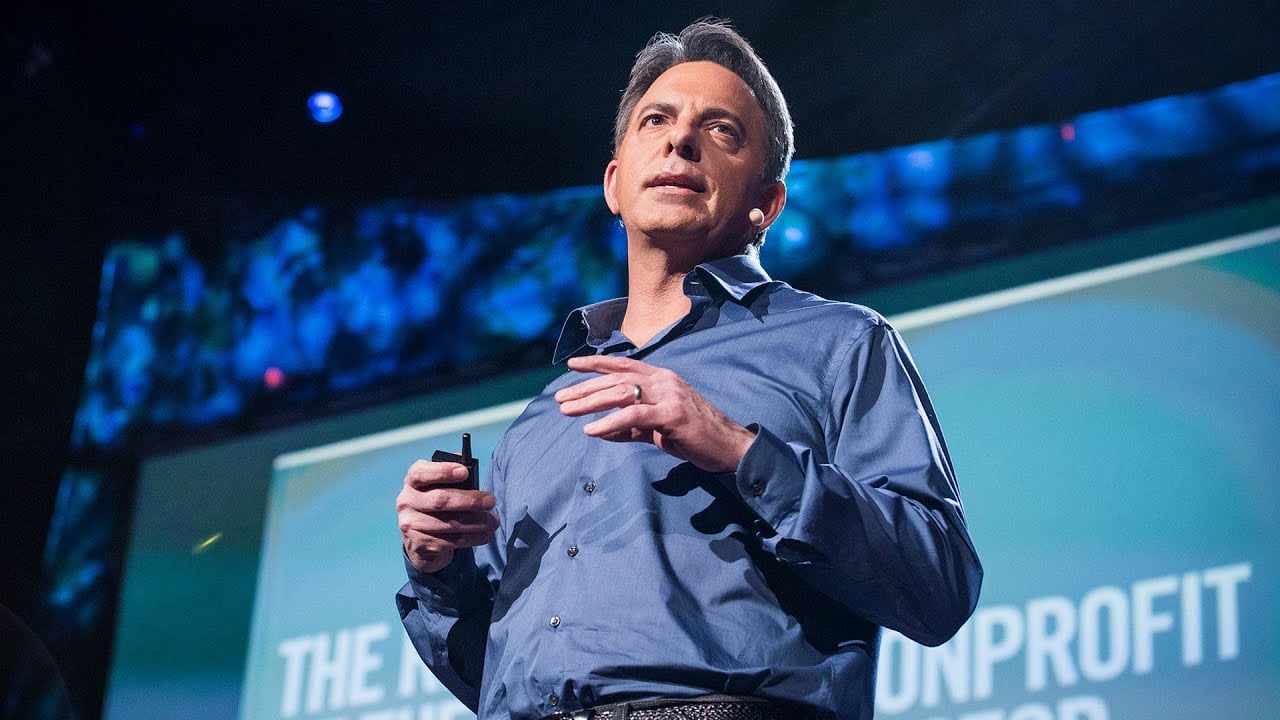10 Best Charities for Ex-Convicts (Complete 2025 List)
Affiliate Disclosure
Hey fellow impactful ninja ?
You may have noticed that Impactful Ninja is all about providing helpful information to make a positive impact on the world and society. And that we love to link back to where we found all the information for each of our posts.
Most of these links are informational-based for you to check out their primary sources with one click.
But some of these links are so-called "affiliate links" to products that we recommend.
Why do we add these product links?
First and foremost, because we believe that they add value to you. For example, when we wrote a post about the environmental impact of long showers, we came across an EPA recommendation to use WaterSense showerheads. So we linked to where you can find them. Or, for many of our posts, we also link to our favorite books on that topic so that you can get a much more holistic overview than one single blog post could provide.
And when there is an affiliate program for these products, we sign up for it. For example, as Amazon Associates, we earn from qualifying purchases.
What do these affiliate links mean for you?
First, and most importantly, we still only recommend products that we believe add value for you.
When you buy something through one of our affiliate links, we may earn a small commission - but at no additional costs to you.
And when you buy something through a link that is not an affiliate link, we won’t receive any commission but we’ll still be happy to have helped you.
What do these affiliate links mean for us?
When we find products that we believe add value to you and the seller has an affiliate program, we sign up for it.
When you buy something through one of our affiliate links, we may earn a small commission (at no extra costs to you).
And at this point in time, all money is reinvested in sharing the most helpful content with you. This includes all operating costs for running this site and the content creation itself.
What does this mean for me personally?
You may have noticed by the way Impactful Ninja is operated that money is not the driving factor behind it. It is a passion project of mine and I love to share helpful information with you to make a positive impact on the world and society. However, it's a project in that I invest a lot of time and also quite some money.
Eventually, my dream is to one day turn this passion project into my full-time job and provide even more helpful information. But that's still a long time to go.
Stay impactful,
1 in 3 American adults has a criminal record, limiting their access to education, jobs, housing, and other resources needed to achieve self-sufficiency. Furthermore, 68% of released prisoners are rearrested within three years, equating to about 9 million ex-inmates returning each year. Fortunately, charities nationwide are fighting to break the cycle of incarceration across communities and provide critical opportunities for former convicts to stabilize their employment, housing, and mental health. So we had to ask: What are the best charities for ex-convicts?
The best charities for ex-convicts are The Fortune Society, the Safer Foundation, and the Anti-Recidivism Coalition. Other charities, like Root & Rebound and the Second Chance Center, fight for the rights of former prisoners through legal assistance and life skills support.
Whether you want to help ex-convicts access dignified and long-term employment, support them to obtain personal, stable housing, or advance policies that protect the rights of ex-offenders to end recidivism, there is a charity for you. Keep reading to learn more about what the best charities for ex-convicts are all about, how they work, and what your best way would be to make a contribution.
Here’s What All the Best Charities for Ex-Convicts Have in Common
The charities on this list were chosen based on their mission, transparency ratings, and achievements.
They operate all over the US, helping local formerly imprisoned people find meaning and critical support in their lives.
Most of the charities below provide reentry services to advance the education and life skills of ex-prisoners so that they can remain in their communities and not recidivate. They also assist with immediate needs such as housing and everyday necessities to create a stable path to reentry into society.
In addition, the charities offer vocational training and connect former convicts with transitional or stable employment opportunities to secure their freedom. Furthermore, their advocacy fights are shaping the current legal system to end mass incarceration and inmate discrimination.
Yet, all these charities work to help ex-convicts rehabilitate their lives holistically.
These Are the 10 Best Charities for Ex-Convicts in 2025
Below are our favorite charities for ex-convicts (you can click on their link to directly jump to their section in this article):
Best Charities for Ex-Convicts
(At the end of this article, we’ll also share our six-step approach on how you can select the best charity to support.)
The Fortune Society: Building People, Not Prisons

🔎
Their transparency & ratings:
The Fortune Society has a 4-star rating from Charity Navigator.
“We believe in the power of people to change. We help individuals with justice involvement rebuild their lives, through innovative services and advocacy.”
The Fortune Society
⚒️
What they do:
The Fortune Society provides affordable housing to formerly incarcerated people to rebuild their lives. They also run educational programs and employment training to fill gaps of opportunity for ex-convicts. For instance, they train ex-offenders in fields such as culinary arts, building construction, and commercial driving. In addition, they work to heal prison-related trauma and provide treatments and support groups for ex-offenders battling substance abuse. Moreover, their Creative Arts program helps ex-convicts to overcome their past experiences through artistic expression. Also, they teach digital skills to help ex-prisoners succeed in multiple career paths.
🚀
What they’ve achieved:
Today, The Fortune Society offers supportive services to over 11,000 ex-prisoners each year. For example, in 2021, they invested almost $35 million in their supportive services for people with incarceration histories. In the same year, they conducted 5,400 individual therapy sessions and 4,000 support group meetings for ex-offenders with substance abuse issues. Furthermore, they organized 4,500 instructional sessions in their education program and helped ex-prisoners obtain specialized jobs with salaries starting at $17 per hour. In addition, they served 40,000 meals to ex-convicts in need and provided housing to 500 people, with 88% of them transitioning to personal housing.
✨
Ways to contribute:
You can donate to The Fortune Society on their website. You can also support them by joining their public fundraising events or volunteering your time.
Safer Foundation: A Road to a Better Future
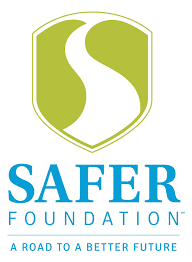
🔎
Their transparency & ratings:
According to their financial report, The Safer Foundation spent 85% of their total income on charitable services, 13% on administration costs, and 2% on fundraising events.
“Here, we know opportunity is key—to empowering individuals, strengthening communities, and creating a better way forward for all. Our core belief is an unobstructed road to reentry.”
Safer Foundation
⚒️
What they do:
The Safer Foundation runs mental health reentry programs to help former convicts develop new strategies and motivation to navigate their lives. For instance, they address immediate needs after being released from prison while assisting with anger management classes and substance use counseling. They also provide legal assistance and transitional housing to help ex-inmates rebalance their lives. In addition, their educational services and vocational training help ex-offenders learn skills for promising employment opportunities. Furthermore, they serve ex-prisoners with immediate employment and career-building for long-term jobs.
🚀
What they’ve achieved:
Today, the Safer Foundation serves 5,300 formerly imprisoned people each year to improve their life outcomes, helping 3,200 of them gain employment. For example, in 2020, they trained 450 ex-prisoners for specialized career paths, with 225 finding employment in the industry of their training. In the same year, they assisted 600 formerly convicted people with mental health and substance abuse counseling. In addition, they provided 6,000 classes of education services and financial counseling to 440 ex-convicts, with 27 of them obtaining a High School Equivalency Diploma.
✨
Ways to contribute:
You can donate to the Safer Foundation on their website. In addition, you can join as a volunteer or donate products to help ex-convicts gain their daily necessities.
Anti-Recidivism Coalition: We Open Doors for People
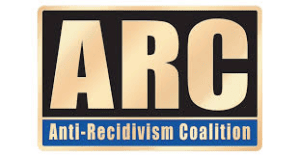
🔎
Their transparency & ratings:
The Anti-Recidivism Coalition has a 4-star rating from Charity Navigator and holds the Platinum Seal of Transparency from GuideStar.
“We believe communities are stronger when individual people are safe, healthy, and whole.” Anti-
Recidivism Coalition
⚒️
What they do:
The Anti-Recidivism Coalition helps ex-prisoners to expunge their previous felonies and overcome legal barriers associated with justice involvement. They also provide car rides directly from prisons to their transitional housing facilities. Then, their supportive services and life skills programming reduce recidivism and improve reentry outcomes for ex-offenders. For instance, they offer trauma counseling and whole-person care to improve residents’ emotional well-being. Also, they organize vocational trainings to help ex-convicts find dignified careers and economic stability.
🚀
What they’ve achieved:
To date, the Anti-Recidivism Coalition has provided 167,000 hours of supportive services to over 6,700 formerly incarcerated people to help them remain in their communities. Furthermore, they have developed a network of 2,200 advocates who helped pass 35 bills in California to protect the rights of ex-prisoners. They have also housed 500 ex-offenders in transitional homes, where they provided 1,000 support group meetings and 400 therapy sessions. In addition, they have trained 470 ex-inmates in vocational jobs and created the Ventura Training Center to help 360 ex-convicts train as firefighters, with 70% graduating and starting their careers.
✨
Ways to contribute:
You can donate to the Anti-Recidivism Coalition on their website. You can also get involved by buying their merchandise or subscribing to their newsletter to receive advocacy opportunities.
Root & Rebound: Justice. Liberation. Healing.

🔎
Their transparency & ratings:
Root & Rebound has a 3-star rating from Charity Navigator and holds the Silver Seal of Transparency from GuideStar.
“We help people access employment, find housing, reunify their families, and assert their rights to dignity and fair treatment under the law.”
Root & Rebound
⚒️
What they do:
What they do: Root & Rebound helps ex-offenders to know their rights and opportunities after being liberated from prison to make dignified choices and remain in their communities. For this, they run a hotline with free legal advice on human rights for people with a conviction record. They also have community-wide legal clinics to give one-to-one coaching from legal teams and help with record-cleaning to improve career progression. In addition, their community lawyer provides in-depth legal counsel and representation to justice-involved people. Also, their specialized program supports formerly incarcerated women to build their careers and gain financial security.
🚀
What they’ve achieved:
Since their founding, Root & Rebound has offered direct legal support to 10,700 ex-convicts through their legal teams and their Reentry Hotline. Also, 95% of callers said that the hotline has helped them resolve legal issues related to their convictions. For example, in 2022, they provided individualized legal services to 2,500 ex-offenders and gave career training to 880 of them. Out of all the ex-prisoners, 79% achieved employment and increased their income, while 75% obtained more secure housing. The same year, they helped enact six bills in California against unfair barriers to employment for formerly imprisoned people.
✨
Ways to contribute:
You can donate to Root & Rebound on their website. You can also support them by becoming a volunteer or partnering your business with them to create systemic change.
Second Chance Center: Helping Transform Lives Through Reentry

🔎
Their transparency & ratings:
The Second Chance Center has a 4-star rating from Charity Navigator. They also hold the Silver Seal of Transparency from GuideStar.
“We are determined to reduce recidivism rates and protect future generations from the continuing cycle of incarceration.”
Second Chance Center
⚒️
What they do:
The Second Chance Center works to reverse the negative impact of incarceration and encourages life-changing habits in former convicts to transform their futures. For this, they do cognitive restructuring to help ex-offenders transform feelings and behavior that perpetuate negative outcomes and instill positive patterns for genuine change. They also construct individual plans with ex-inmates to lay the groundwork for their success as citizens. For example, they offer employment services to prepare them for specialized jobs and provide housing options until they can settle in their own home.
🚀
What they’ve achieved:
Since their founding, the Second Chance Center has continued to help incarcerated people transition to lives of success and fulfillment. For example, they have invested $100,000 in an Employment Opportunity Lab to support their clients to make sustainable changes to attain and excel in their career pathways. Furthermore, in 2020, they served 1,880 ex-prisoners and assisted 300 of them with emergency housing and transportation services. In the same year, they helped 219 formerly convicted people find meaningful employment and offered further career training to 53 of them.
✨
Ways to contribute:
You can donate to the Second Chance Center on their website. You can also support them by becoming a community partner or applying for volunteering opportunities.
A New Way of Life: Linking Promise With Opportunity
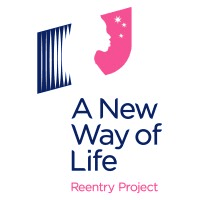
🔎
Their transparency & ratings:
A New Way of Life has a 4-star rating from Charity Navigator. They also hold the Bronze Seal of Transparency from GuideStar.
“We empower communities with opportunities where justice-impacted women heal, excel, and lead while disrupting systems of oppression and harm.”
A New Way of Life
⚒️
What they do:
A New Way of Life runs The SAFE Housing Network with transitory homes to help ex-inmates heal from the trauma of incarceration and empower them to end the cycle of imprisonment. There, they help residents meet the conditions of parole or probation and support them to find permanent housing. They also work with employers and educational institutions to create a prison-to-college and career pipeline. In addition, their legal clinics help people clean their criminal records and support formerly imprisoned parents to restore their relationships with their children. Moreover, they advocate for the rights of ex-convicts through policy and law changes.
🚀
What they’ve achieved:
Since their founding, A New Way of Life has provided almost 4,000 formerly convicted people with legal and reentry services to reconnect them with their communities. They have also offered safe housing post-incarceration to 1,500 people across 18 states and 4 countries. In addition, they have helped 400 formerly imprisoned parents to reunite with their children through psychological and family counseling. Furthermore, they have assisted thousands of individuals in cleaning their conviction history and offered career training to 200 ex-offenders. Moreover, they developed a network of over 4,000 advocates to advance just reentry policies.
✨
Ways to contribute:
You can donate to A New Way of Life on their website. You can also contribute by joining their team or following their Instagram and Twitter / X profiles.
Center for Community Transitions: Building Stronger Communities, Together

🔎
Their transparency & ratings:
The Center for Community Transitions has a 4-star rating from Charity Navigator.
“We fight to return individuals to their family and our community as law-abiding citizens and re-engage them as parents, employees and neighbors.”
Center for Community Transitions
⚒️
What they do:
The Center for Community Transitions prepares formerly convicted people to introduce themselves to potential employers and create personal branding. They also support ex-inmates to advance their careers and improve their lives. In addition, they connect ex-offenders who have a chronic disease, mental illness, or substance use disorder with individualized reentry resources to help them thrive. In addition, their support group helps ex-prisoners navigate everyday life and manage the effects of incarceration trauma. Furthermore, they offer psychological support to children of ex-convicts and have a women-focused reentry program.
🚀
What they’ve achieved:
Today, the Center for Community Transitions serves 1,500 formerly imprisoned people each year. For example, in 2022, they helped 250 ex-convicts connect with a dignified career and increase their job-related skills. Out of them, 95% did not recidivate and continued to live in their communities. In the same year, they helped over 400 children of ex-prisoners to navigate social barriers and family issues. They also supported 51 female ex-offenders with 604 therapy sessions and 138 Peer Support meetings to help 65% of them achieve one or more post-incarceration goals.
✨
Ways to contribute:
You can donate to the Center for Community Transitions on their website. In addition, you can sign up as a volunteer or advocate for more just policies for offenders and ex-prisoners.
The Fountain Fund: Hope and Opportunity for the Formerly-Convicted

🔎
Their transparency & ratings:
The Fountain Fund has a 3-star rating from Charity Navigator and holds the Platinum Seal of Transparency from GuideStar.
“We envision that all formerly incarcerated people and their families have hope and opportunity to thrive in their goals.”
The Fountain Fund
⚒️
What they do:
The Fountain Fund provides micro-loans to formerly incarcerated people who would not qualify for traditional credit but have viable job prospects or entrepreneurial ventures. Ex-offenders can use loan funds to pay court-imposed debt and job-related expenses or continue their education. They can also secure rental housing or start a business. Furthermore, the charity gives financial literacy training through group workshops or one-on-one coaching to give ex-convicts the understanding and skills to build credit. In addition, they provide emergency financial assistance and connect ex-prisoners with community services to rehabilitate their lives.
🚀
What they’ve achieved:
Since their inception, The Fountain Fund has distributed more than 350 low-interest microloans, totaling $1.5 million, to 300 formerly convicted people. Today, 80% of the participants paid back the whole sum and $750,000 in loan capital has been recycled to be used by other justice-impacted people. In addition, 100% of participating ex-inmates have achieved their self-determined goals. Furthermore, 86% of them have established or improved their credit scores, and 88% improved their understanding of the credit system.
✨
Ways to contribute:
You can donate to The Fountain Fund on their website. You can also support them by distributing their uplifting ex-convict stories on Instagram and Facebook.
Project Return: There Is a New Life to Live After Prison

🔎
Their transparency & ratings:
Project Return has a 4-star rating from Charity Navigator and holds the Silver Seal of Transparency from GuideStar.
“We are dedicated to the successful new beginnings of people who are returning to our community after incarceration. We provide the resources needed to gain employment and build full and free lives.”
Project Return
⚒️
What they do:
Project Return works to reduce recidivism and increase employment. They do this by providing people returning from prison with immediate paid employment and ongoing career support. For example, they offer work experience through temporary staffing services to help their transitional employees earn money and learn job skills. They also assist ex-convicts to get hired in home reconstruction, as well as janitorial and disinfecting services, by commercial clients. In addition, they support justice-involved people with job and financial coaching, identification documents, and medical appointments, to provide holistic rehabilitation.
🚀
What they’ve achieved:
Since their founding, Project Return has assisted hundreds of people every year to start a new life after incarceration. For example, they have helped 1,500 formerly convicted people to find dignified employment. They also supported ex-inmates to rehabilitate 32 homes through the charity’s home construction program. For example, in 2019, 83% of the ex-offenders they worked with maintained employment after their release, thus creating 578 job placements. The same year, their jail recidivism rate was 15%, way lower than the national average, which is 82%.
✨
Ways to contribute:
You can donate to Project Return on their website. In addition, you can support them by doing a birthday fundraiser or applying for one of their internships.
San Diego Second Chance Program: Fostering Empowered Self-Sufficiency for All
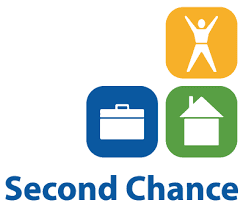
🔎
Their transparency & ratings:
The San Diego Second Chance Program has a 3-star rating from Charity Navigator and holds the Platinum Seal of Transparency from GuideStar.
“We fight to give specialized workforce-readiness training, sober-living housing, and educational programs essential to achieving self-sufficiency.”
San Diego Second Chance Program
⚒️
What they do:
The San Diego Second Chance Program provides alcohol or drug treatment and mental health counseling to ex-offenders with substance-induced mental health disorders. They also give ex-inmates job readiness training and employment placement services, as well as sober-living houses, to make holistic changes in their lives and keep them out of prison. In addition, they help formerly convicted youth to develop life skills and occupational skills needed to obtain livable wage jobs. Also, their Youth Garden Program offers hands-on urban farming, nutrition classes, and workforce training to prepare participants for permanent jobs.
🚀
What they’ve achieved:
Today, the San Diego Second Chance Program serves hundreds of justice-involved adults and youth each year with positive pathways to meaningful change. For example, through their Youth Garden Program, they helped formerly convicted youth farm 3.5 tons of fresh produce which were distributed to those in need. Moreover, in 2020, they housed 260 ex-offenders in their sober-living houses to help them overcome the addictions that led them to imprisonment. The same year, they assisted 157 formerly incarcerated people in finding new permanent jobs with wages starting at over $15 per hour.
✨
Ways to contribute:
You can donate to the San Diego Second Chance Program on their website. You can also contribute by donating products and everyday necessities for ex-inmates or by offering your time as a volunteer.
How Can You Select the Best Charities to Support?
The charities on the list are, we deem, the best charities for ex-convicts. However, you may have a particular charity you want to support. Let’s look at what you can do to ensure your contribution has the most significant impact.
- Check out the charity website. Charities that are worthy of your donations are transparent in their mission and their figures. Familiarize yourself with their history, mission, and values. Their website usually is the best place to start.
- Identify the charity’s mission. Without a goal, the charity is likely to fail. If the charity’s mission isn’t clear, it’s probably worth looking for a charity that does have a clear mission.
- Check if the charity has measurable goals. An effective charity has clear goals. You want to know your donation will help the charity reach its goals. But if it doesn’t have targets, it’s likely to fail or squander your gift. The charity should be able to account for its spending and supply evidence of the work they do.
- Assess the successes or goals the charity has achieved. You wouldn’t invest in a business if it kept missing its targets. In the same way, charities are like this too. If no one is assessing a charity’s progress in reaching its targets, the chances are they’re not making a substantial positive change.
- Check the charity’s financials and stats. Trustworthy organizations will publish financial statements and reports each year. Some might be exempt from having to do so, but they should be able to provide them to public members who are interested in donating.
- Locate sources who work with or benefit from the charity. Word of mouth and first-hand experience of a charity’s work lets you know the charity’s quality. If you’re able to do so, check out the charity for yourself or speak to someone familiar with it. This way, your donation will go to the right place.
How Can You Best Support These Charities?
After you’ve made your decision, it’s time for you to decide on how you’d like to help the charities you’ve chosen. Check how you can help – each charity runs specific programs that have unique aims. Find out what the aim of such programs is and whether they are right for you.
Here are a few ways you can help your chosen charity:
- Donate money. You can find donation pages on the website of most charities. Your donation can be a one-time payment, or you can set it to be deducted regularly at different intervals. You can mostly pay via credit card, but some charities also take PayPal or Bitcoin payments.
- Buy their official merchandise. The charities can also raise money by selling merchandise. So, you can support them by buying the mugs, shirts, caps, pens, pencils, and any other such items they may be selling. Ideally, you should buy as much as you can to share and spread the word about the charity’s activities.
- Engage in volunteer work. As you’ve seen from our descriptions above, some charities engage in a lot of local and grassroots programs. You can help by taking on and organizing the program in your local area.
- Help their fundraising efforts. You can spread the word about the charity in your workplace, school, church, etc., and hold creative fundraising drives on social media or offline within your small circles.
- Share their stories. Most charities have compelling stories that you can share with your audience to attract more people to the cause.
Final Thoughts
Now it is up to you to select the charity that resonates most with you. And whichever charity you end up choosing and contributing to, we are sure that they will immensely appreciate your support. Hopefully, the information within this article has made this selection process a bit easier for you to support charities dedicated to ex-convicts – based on the causes that matter most to you.
Stay impactful,

PS: Finally, I want to leave you with a thought-provoking TED talk from Dan Pallotta, a leading philanthropic activist and fundraiser, about what is wrong with the way we think about charities – and what we can do about it:
Sources
- Second Chance Program: Home Page
- National Institute of Justice: Measuring Recidivism
- Corrections1: Why ex-prisoners struggle to successfully reintegrate into society
- The Fortune Society: home page
- Charity Navigator: The Fortune Society
- The Fortune Society: services that build lives – HOUSING
- The Fortune Society: education
- The Fortune Society: employment services
- The Fortune Society: food and nutrition
- The Fortune Society: mental health treatment
- The Fortune Society: peer recovery
- The Fortune Society: substance use treatment
- The Fortune Society: creative arts
- The Fortune Society: digital equity
- The Fortune Society: service that build lives
- The Fortune Society: 2020 – 2021 annual report
- The Fortune Society: results
- The Fortune Society: donate
- The Fortune Society: events
- The Fortune Society: volunteer or internships
- The Safer Foundation: home page
- The Safer Foundation: financial report
- The Safer Foundation: reentry support and wellness
- The Safer Foundation: immediate needs
- The Safer Foundation: behavioral health
- The Safer Foundation: legal assistance
- The Safer Foundation: housing support
- The Safer Foundation: educational services
- The Safer Foundation: vocational training
- The Safer Foundation: immediate employment
- The Safer Foundation: career building
- The Safer Foundation: long term employment
- The Safer Foundation: about us and our team
- The Safer Foundation: 2020 annual report
- The Safer Foundation: donate
- The Safer Foundation: get involved
- The Anti-Recidivism Coalition: home page
- Charity Navigator: The Anti-Recidivism Coalition
- GuideStar: The Anti-Recidivism Coalition
- The Anti-Recidivism Coalition: felony expungement
- The Anti-Recidivism Coalition: advocacy priorities
- The Anti-Recidivism Coalition: ride home program
- The Anti-Recidivism Coalition: housing facilities
- The Anti-Recidivism Coalition: our programs
- The Anti-Recidivism Coalition: supportive services
- The Anti-Recidivism Coalition: workforce and education
- The Anti-Recidivism Coalition: 2023 annual report
- The Anti-Recidivism Coalition: policy victories
- The Anti-Recidivism Coalition: ventura training center
- The Anti-Recidivism Coalition: donate
- The Anti-Recidivism Coalition: merchandise
- The Anti-Recidivism Coalition: newsletter
- Root & Rebound: home page
- Charity Navigator: Root & Rebound
- GuideStar: Root & Rebound
- Root & Rebound: south carolina programs and services
- Root & Rebound: reentry legal hotline
- Root & Rebound: legal clinics and trainings
- Root & Rebound: community lawyer in the bay area
- Root & Rebound: Fresno Women’s Reentry Employment Initiative
- Root & Rebound: our impact
- Root & Rebound: 2022 annual report
- Root & Rebound: donate
- Root & Rebound: volunteer
- Root & Rebound: partnerships
- The Second Chance Center: home page
- Charity Navigator: The Second Chance Center
- GuideStar: The Second Chance Center
- The Second Chance Center: about us
- The Second Chance Center: services
- The Second Chance Center: cognitive restructuring
- The Second Chance Center: Never Going Back (NGB) Mentoring and Motivational Interviewing
- The Second Chance Center: plan development
- The Second Chance Center: employment services
- The Second Chance Center: housing and transportation
- The Second Chance Center: Press Release: Second Chance Center Wins Impact 100 Award
- The Second Chance Center: our impact
- The Second Chance Center: donate
- The Second Chance Center: support us
- A New Way of Life: home page
- Charity Navigator: A New Way of Life
- GuideStar: A New Way of Life
- A New Way of Life: SAFE housing network program
- A New Way of Life: housing
- A New Way of Life: expungement and licenses
- A New Way of Life: family reunification
- A New Way of Life: advocacy and leadership
- A New Way of Life: SAFE Housing replication model
- A New Way of Life: what we do
- A New Way of Life: donate
- A New Way of Life: apply for a job
- A New Way of Life: Instagram profile
- A New Way of Life: Twitter profile
- The Center for Community Transitions: home page
- Charity Navigator: The Center for Community Transitions
- The Center for Community Transitions: life works!
- The Center for Community Transitions: FIT (Formerly Incarcerated Transition) Program
- The Center for Community Transitions: seeking safety
- The Center for Community Transitions: families doing time
- The Center for Community Transitions: center for women
- The Center for Community Transitions: history
- The Center for Community Transitions: 2023 annual report
- The Center for Community Transitions: donate
- The Center for Community Transitions: volunteer
- The Center for Community Transitions: advocate
- The Fountain Fund: home page
- Charity Navigator: The Fountain Fund
- GuideStar: The Fountain Fund
- The Fountain Fund: what we do
- The Fountain Fund: our impact
- The Fountain Fund: who we are
- The Fountain Fund: donate
- The Fountain Fund: Instagram profile
- The Fountain Fund: Facebook Profile
- Project Return: home page
- Charity Navigator: Project Return
- GuideStar: Project Return
- Project Return: what we do
- Project Return: PRO employment
- Project Return: PRO housing
- Project Return: PROPS
- Project Return: PROPS disinfecting
- Project Return: why we exist
- Project Return: by the numbers
- U.S. Department of Justice: From the Desk of BJA
- Project Return: donate
- Project Return: get involved
- The San Diego Second Chance Program: home page
- Charity Navigator: The San Diego Second Chance Program
- GuideStar: The San Diego Second Chance Program
- The San Diego Second Chance Program: reentry court
- The San Diego Second Chance Program: adult
- The San Diego Second Chance Program: job readiness training
- The San Diego Second Chance Program: sober-living housing
- The San Diego Second Chance Program: youth
- The San Diego Second Chance Program: STRIVE Future Leaders Education Advancement Partnership (LEAP)
- The San Diego Second Chance Program: youth garden program
- The San Diego Second Chance Program: about us
- The San Diego Second Chance Program: 2020 annual report
- The San Diego Second Chance Program: donate
- The San Diego Second Chance Program: in-kind support
- The San Diego Second Chance Program: volunteer










